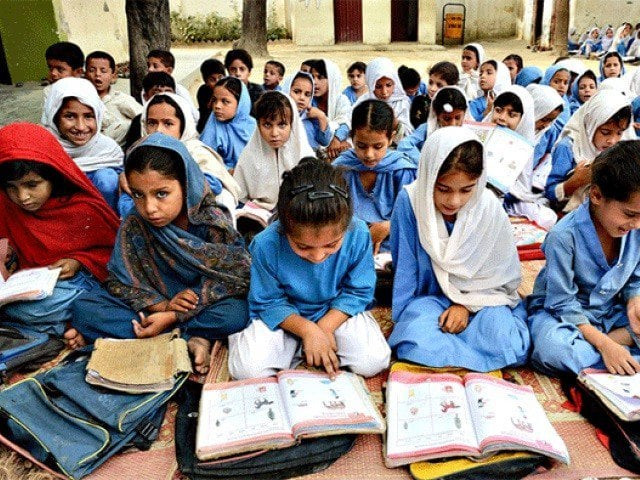NA panel clears bill against corporal punishment in capital’s schools
HEC warns against budgetary cuts for higher education institutions

PHOTO: FILE
Presented by MNA Mehnaz Akbar Aziz, the Islamabad Capital Territory Prohibition of Corporal Punishment Bill was passed by the National Assembly Standing Committee on Education and Professional Training. The committee was chaired by MNA Mian Najeebud Din Awaisi and was held at the Higher Education Commission (HEC) Secretariat.
Corporal punishment continues unabated at K-P schools
The committee also approved bills regarding the employment quota for specially-abled people, the Disabled Persons Employment and Rehabilitation Bill. The amended bill had been presented by Tahira Aurangzaib.
The committee was also briefed about the University of Islamabad Bill 2019, by HEC’s Accreditation and Attestation Director General Tahir Abbas Zaidi.
Budgetary cuts
During Monday’s meeting, HEC Chairman Dr Tariq Banuri warned the committee against proposed budgetary cuts in for higher educational institutions in the country, noting that it would push these institutions towards a crisis.
“Pakistan’s education system is grossly under-funded,” he said, adding that instead of increasing, budgets for the higher education sector have been constantly fluctuating since the establishment of the HEC in 2002.
He added that in consultations with the finance ministry, the HEC had proposed a budget worth Rs103.55 billion for the higher education sector for the fiscal year 2019-20. However, the indicative budgetary ceilings (IBCs) showed that only Rs58.5 billion would be allocated for the sector.
He maintained that the sector needs at least Rs55 billion in development funds, while the IBCs show allocations of only Rs35.8 billion.
Dr Banuri explained that Pakistan barely spends 2.8% of its gross domestic product (GDP) on education, which must be at least four per cent. He added that the higher education sector must get at least a fourth of the four per cent education budget, but unfortunately, the sector could only get a tenth of the allocated amount.
The chairman said that well-reputed universities hire people on merit owing to which the institution worked better. However, he said that they have to extract the best out of the available teachers and even improve them.
“Good vice-chancellors plan better, which ultimately improves the university,” he said, adding that the Balochistan University was a prime example.
The HEC chairman noted that the 18th amendment was not an issue, but lack of unity amongst stakeholders was.
To a question about the mushroom growth of private institutions in the country, he said that the HEC is a regulatory body which sets standards for higher education institutions across the country.
Need to ban corporal punishment
“All institutions need to fulfil the HEC criteria before securing a charter to operate anywhere in the country,” he explained.
Asked about the future plans of the commission, Dr Banuri stated that they were working on reviving the National Academy of Higher Education (NAHE) to train potential university leadership, and to build the capacity of all teaching and non-teaching university staff.
He also underlined HEC’s efforts for the promotion of ICT through the expansion of Pakistan Education and Research Network (PERN). He added that the Higher Education Management Information System (HEMIS) is being executed to ensure transparency and efficiency in university operations.
Published in The Express Tribune, May 21st, 2019.


















COMMENTS
Comments are moderated and generally will be posted if they are on-topic and not abusive.
For more information, please see our Comments FAQ